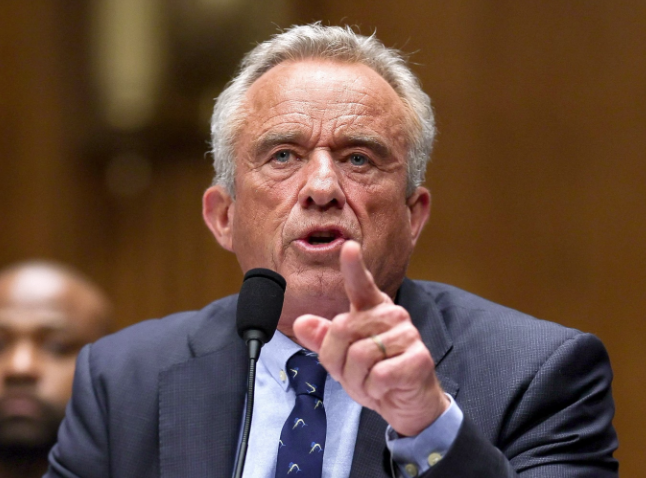
- Details
- By Levi Rickert
During a May 14 hearing before the House Appropriations Committee, Health and Human Services Secretary Robert F. Kennedy Jr. described the widespread distribution of ultra-processed foods in Native American communities as a form of “genocide,” drawing national attention to long-standing health disparities affecting Indigenous populations.
Kennedy’s remarks centered on the health crisis linked to federal food assistance programs on tribal lands—programs that often prioritize cheap, processed items over nutritious, culturally appropriate foods. Citing the dramatic health decline among the Pima people of Arizona, Kennedy underscored the connection between poor nutrition and chronic diseases devastating Native communities.
“We’re feeding people food that we know causes obesity, diabetes, kidney failure, and heart disease,” Kennedy said. “And we continue doing it decade after decade. That is genocide.”
Kennedy referenced the Pima as a case study. Once known for their robust health and active lifestyles, the Pima who reside on U.S. reservations now face a life expectancy between just 47 and 53 years—decades shorter than the national average of 74.8 years. In contrast, Pima communities across the border in Mexico, who maintain more traditional diets, experience longer lives and significantly lower rates of diabetes and obesity.
This stark difference, Kennedy argued, illustrates the devastating health impact of industrialized food systems imposed on Native communities.
During his testimony, Kennedy called for comprehensive reforms. These include revamping federal nutrition programs, increasing access to traditional and locally grown foods, and strengthening support for Indigenous-led health initiatives. He also committed to prioritizing funding for the Indian Health Service (IHS), which remains chronically underfunded and understaffed.
“If we want to talk about justice, we must start by returning autonomy over health and food back to Native people,” Kennedy said.
Despite his promises, Kennedy has come under fire from tribal leaders and Native health advocates for contradictory actions. The administration recently cut $32.5 million in funding for the CDC’s Healthy Tribes program, which supported chronic disease prevention and traditional medicine. Over 30 positions were eliminated, including 11 directly linked to tribal initiatives.
For many Native leaders, these cuts undermine Kennedy’s words and raise questions about the federal government’s commitment to fulfilling its trust and treaty obligations.
Kennedy’s strong rhetoric has sparked a range of reactions across Indian Country. Some welcome the attention to long-ignored health disparities, while others remain skeptical. Former Interior Secretary Deb Haaland, a tribal citizen of the Laguna Pueblo, criticized the decision to reassign top HHS officials to tribal areas without consultation, calling it a failure of government-to-government respect.
“You can’t impose solutions on us and call it support,” Haaland said. “Real partnership starts with listening.”
More Stories Like This
‘You Are Never Alone’ | How One Tribe Is Fighting Youth Suicide With Culture and Crisis Response‘Our Culture is Prevention’
This National Cancer Prevention Month, Reduce Your Risk
New Mexico Will Investigate Forced Sterilization of Native American Women
USDA Expands Aid for Lost Farming Revenue Due to 2025 Policies


